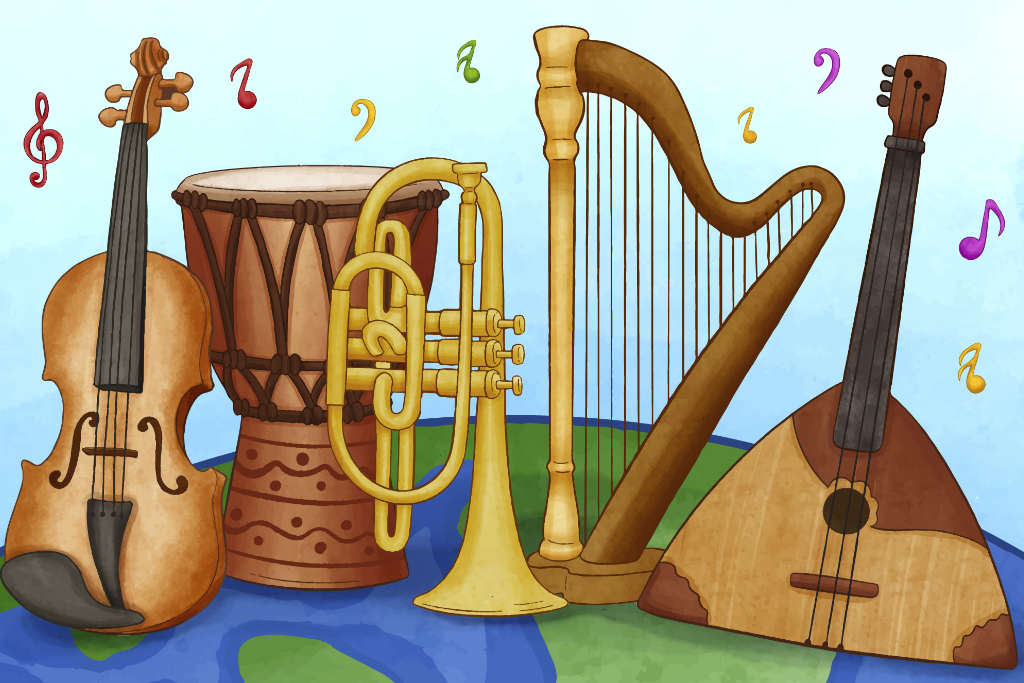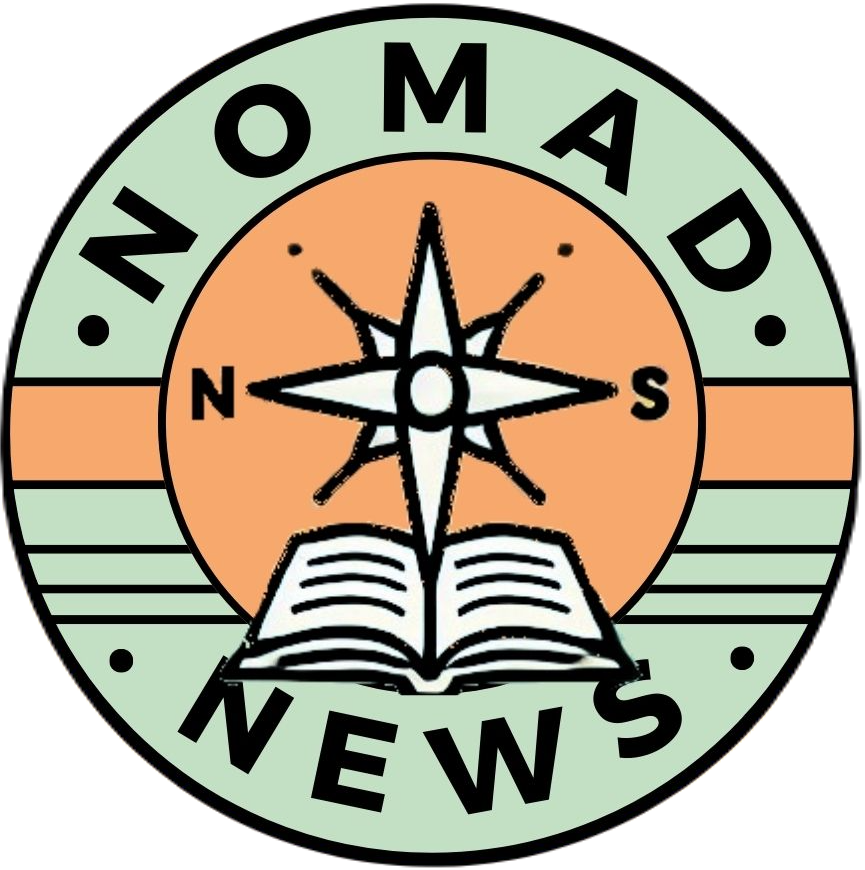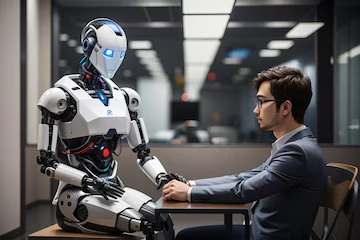Music has long been considered a universal language, but as artificial intelligence grows more sophisticated, it now has the potential to replicate and personalize the deeply personal nature of music taste. AI models have recently learned to create music tailored to individual preferences, blending genres and cultural influences in unprecedented ways. This raises the question: can AI-generated music serve as a bridge between cultures, offering listeners an introduction to new languages, sounds, and traditions?
To explore this, I sat down with three students—Marcos from Spain, Ewan from France, and Joost from the Netherlands—who all have vastly different music preferences. The challenge? To use AI to generate a Dutch song based on their favorite styles and see if it actually resonates with them. Could an algorithm understand the nuances of their musical identities, or would it create something unrecognizable? The results? Well, let’s just say reactions ranged from pleasantly surprised to mildly horrified.
The Science of AI Music: How Does It Work?
AI music isn’t just magic—it’s data-driven creativity. AI models analyze thousands of songs, identifying patterns in melody, rhythm, and composition. Using this data, they generate entirely new tracks by predicting which sounds should come next. The process is similar to how AI completes sentences in text-based models, except with music, it’s working with instruments, tempo, and structure.
However, while AI can replicate style, it struggles with true emotion and originality—a key factor in why some students felt disconnected from their AI-generated songs. The human touch, the imperfections, and the rawness of a live performance are elements AI still cannot fully grasp.
AI in the Music Industry: Revolution or Threat?
AI is already making waves in the music industry. Artists like Taryn Southern or Grimes embrace it as a tool to enhance creativity, while others fear it could replace musicians entirely. AI-generated songs are now appearing in streaming services, and virtual artists like Hatsune Miku have shown that music no longer requires a human performer.

Yet, there’s still a heated debate. Can AI ever match the authenticity of a song written from real human experience? While AI can replicate and remix, it still lacks the true spontaneity and emotion that come with human storytelling. Many argue that AI should remain a tool for musicians rather than a replacement.
Music as a Cultural Exchange Tool
One unexpected takeaway from this experiment was how AI could be used for cultural exchange. By translating familiar styles into a new language, it gave students a fresh way to experience Dutch music. Marcos, for instance, never imagined himself listening to Dutch lyrics—but because they were embedded in a beat he loved, he connected with it.

This raises a fascinating question: Could AI-generated music be a way for people to experience other cultures more naturally? If AI continues to improve in blending different sounds and languages, it might just become a powerful tool for cross-cultural musical appreciation. Music has long been a way to introduce people to new ideas and traditions, and AI might soon play a role in accelerating that process.
Marcos (Spain): Urban Beats with a Dutch Twist
If Marcos’ playlist had a personality, it would probably be that effortlessly cool friend who always knows about the latest underground artists before they blow up. His go-to genres? Urban and hip-hop, with favorites like Kanye West, Cruz Cafuné, and C. Tangana. His current obsession? “Jealousy” by Rubii. His music taste is sharp, energetic, and deeply rooted in rhythm, making him the perfect candidate to test AI’s ability to capture a modern, beat-heavy style.
Before hitting play on his AI-generated track, I asked Marcos what he imagined Dutch music to sound like. His response was, well, brutally honest:
Probably white girl music, pop, or something mainstream you’d hear on the radio.
When I think about the Netherlands, I think of techno music.
I don’t really understand the pop music here—it sounds strange to me.
Marcos had never explored Dutch music before, so his assumptions were based on the snippets he had overheard on the radio or in public places. Would the AI-created song confirm his expectations or surprise him?
Reaction to the AI-Generated Song
To everyone’s surprise, Marcos absolutely loved it. His reaction?
I really like the song in Dutch—it truly reflects my music preferences and mix.
I think it’s fascinating that AI can do this.
It really captures the essence of the music I listen to.
Marcos’ song turned out to be the most successful of the experiment, truly mirroring his taste and blending urban beats with Dutch lyrics in a way that felt natural. AI seemed to understand his style in a way that even he hadn’t expected. It proved that, with the right data, AI could recreate a song that resonated emotionally, even in an unfamiliar language.
Who would have thought an AI-generated Dutch song could impress a hip-hop fan from Spain? Certainly not Marcos himself.
Ewan (France): From Pop-Rock to AI-Generated Music
Ewan’s musical taste is the definition of eclectic, bouncing between pop-rock, Beethoven, and Eminem, with a soft spot for Imagine Dragons and the raw grunge energy of Nirvana’s “Smells Like Teen Spirit.” His taste blends classical influences with modern rock and a hint of rebellion, making AI’s challenge even more interesting.
When asked about what Dutch people listen to, Ewan’s initial response was interesting: “I think Dutch people listen to Afro-Caribbean music.” But his imagination didn’t stop there. He continued by painting a vivid picture of his thoughts on Dutch music:
When I think of The Netherlands, I imagine songs about flowers or Vikings.
While we’re not entirely sure how Vikings ended up in the mix, we can’t help but admire his unique and creative take on what Dutch music might be about.
Reaction to the AI-Generated Song
As Ewan listened closely to the AI-generated song, his reaction was thoughtful. He leaned in, absorbed the music, and after a moment of reflection, he shared his opinion:
Some parts of the song could be great, but I think AI still has a lot of progress to make.
When it came to the song’s fit with his personal taste, Ewan was honest:
The song doesn’t really match my style.
He expressed that while the song might have been interesting, it didn’t quite resonate with him in the way he had hoped.
Joost (Netherlands): AI’s Take on the Dutch Sound
As the sole Dutch participant in this project, Joost brought a unique and insider’s perspective on the Dutch music scene, giving us valuable insight into how AI interprets a genre he knows well. When asked what he thinks international students imagine Dutch music sounds like, Joost offered a straightforward response:
They probably associate Dutch music with dance music, schlagers, or songs like ‘Heb Je Even Voor Mij.’
He then went on to share his personal perspective on Dutch music, starting with the genre he associates with his country’s music scene:
I think about dance music, because that’s what we’re most famous for. But I also think of Suzan & Freek, which is just… sad.
It’s clear that while dance music dominates the Dutch music scene, Joost’s feelings toward some of the more mainstream artists might be a bit more complicated.
Reaction to the AI-Generated Song
Joost’s reaction to the AI-generated song was a mix of amusement and a touch of reluctant approval. After listening, he shared his thoughts, however, his opinion took an interesting turn when it came to his personal taste:
This song nails the stereotypical Dutch mainstream sound.
Honestly, I like it more than Dutch mainstream music… but that doesn’t say much.
It seems that while Joost wasn’t overly impressed, the AI-generated song did manage to win him over a little more than the typical fare he might hear on the radio.
Final Thoughts: Can AI Really Capture Music Taste?
This experiment highlights the power of music as a tool for cultural exchange. By using AI to generate songs in a different language and style, it allows people to engage with new musical landscapes in an interactive way.
Marcos found that AI successfully captured his musical identity, though he wanted more uniqueness.
Ewan felt the song didn’t fully align with his personal style.
Joost admitted the AI nailed the Dutch mainstream sound—though not necessarily in a way he admired.
While AI shows great potential in creating stylistically relevant music, it lacks the deeper emotional and cultural nuances that make music truly personal. However, it provides an innovative way for people to explore and appreciate different musical traditions. In the end, music—whether created by humans or AI—remains one of the most powerful ways to connect cultures and people.





